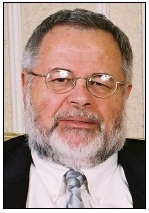Servicios Personalizados
Articulo
Indicadores
Links relacionados
-
 Citado por Google
Citado por Google -
 Similares en Google
Similares en Google
Compartir
Indo-Pacific Journal of Phenomenology
versión On-line ISSN 1445-7377
versión impresa ISSN 2079-7222
Indo-Pac. j. phenomenol. (Online) vol.17 no.1 Grahamstown jul. 2017
http://dx.doi.org/10.1080/20797222.2017.1368256
EDITORIAL
Editorial
Christopher R. Stones
Editor-in-Chief. Professor Emeritus of Psychology Rhodes University, South Africa. E-mail address: editor@ipjp.org
When contemplating the editorial for the current edition of the IPJP, what stood out for me was the sense of dialogue between various of the papers included and, in particular, the editorials of the previous few editions, as well as with contemporary issues in the inter-secting fields of phenomenology, qualitative research methodology and psychology. Jane Fry, Janet Scammell and Sue Barker, for instance, consider the implications for the rigour of phenomenological research of the muddying of the methodological waters by the debate as to whether a literature review should be undertaken, given the risk of "contamination", while David Edwards, through the application of IPA to a clinical case study, demonstrates not only the experiential dynamics of schema therapy in the psychotherapeutic context, but the relationship between the method of schema therapy and that of phenomenology, and hence the means provided by the latter for clarifying various inconsistencies in the identification of schema modes - which, as defined "self states", he relates to what Merleau-Ponty termed "structure of consciousness". In their psychobiography of Steve Jobs, Paul Fouché, Ruvé du Plessis and Roelf van Niekerk similarly interweave the method of psychobiography with both psychological theory and Merleau-Ponty's phenomenological ontology, in the process opening up a wider range of possibilities for using psychobiography as a research method. Jabulani Kheswa, in turn, in the context of a country with not only an alarmingly high rate of HIV/AIDS infection, but the largest antiretroviral treatment programme inter-nationally, explores the critical issue of non-adherence to now freely available antiretroviral treatment and, in particular, the social and structural factors implicated. And, in their respective reviews of two recent anti-phenomenology publications, Max van Manen and Tom Nenon engage with both contemporary trends and the thrust of papers and editorial comment included in previous editions as they clarify the philosophical flaws, fallacies and fatal misconceptions in, on the one hand, the subjecting to "detailed critical analysis" of "the work of established ... methodologists" in contemporary phenomenological research, and, on the other hand, the proclaiming of "the end of phenomenology" by the so-called speculative realists.
At the same time there was yet again the reminder, as in the case of the Special Edition released earlier this year, of not only the philosophical counter-movements to phenomenology seeking to delimit its horizons, but the new areas of focus and methodology that have evolved in the field of psychology itself over the past 20 to 30 years, and thus within the span of just one generation: schema therapy, positive psychology, psychobiography, to name just those most recently thematically inter-linked with phenomenology and accommodated within this journal. And what stood out in particular in this regard was the epiphanic moment of recognition of schema therapy as, ultimately, applied phenomenology in its reliance on listening for and naming each of the multiplicity of voices needing to be heard in order for the essence of "the thing" presenting itself in the psychotherapeutic context to be articulated in all its nuanced complexity.
And then, while preparing the papers included in this edition for publication, there was the shock of hearing, by chance, that Lester Embree - a key figure over the past few decades in the advancement of phenomeno-logy worldwide, and also a highly valued Advisor to the Editorial Board of the Indo-Pacific Journal of Phenomenology, as well as a rigorous referee of various papers submitted to the journal and contributor of four of his own with their inimitable tone and thought-provoking thrust - had died six months earlier, in Boca Raton in Florida, on 19 January 2017, ten days after turning 79. At the time, even while advancing in years, he was still in his indefatigable prime intellectually and professionally, with his death premature due to complications following a spinal injury some months previously.
Lester Embree's death was for me a reminder of the extent to which we tend to perform, even if only subliminally, to an audience, whether inner or outer, for whose nod or frown we watch from the corner of an eye. Lester Embree was a focal face in the IPJP's envisaged audience - as, no doubt, in that of every contemporary journal and endeavour related to phenomenology: much of which he personally had been instrumental in initiating. Described by his colleagues at Florida Atlantic University as a "global ambassador for phenomenology" and, as such, "a great impressario", and, by Michael Barber and Tom Nenon, as "a great entrepreneur for phenomenology", Lester Embree had somehow come to take on the role of what he referred to as fostering the continuation of the phenomenological tradition. In this regard, as he stated in the inaugural edition of this journal, "My purposes are not theoretical ...; instead, they are practical" (2001, p. 1). To advance his vision for phenomenology, he therefore set out not only to encourage the turning of philosophical phenomenology from the interpretation of texts to "investigation of the matters themselves", but also to foster communication between phenomenologists across cultural and disciplinary divides by organising conferences. As noted by Michael Barber and Tom Nenon (2017) in their obituary in honour of Lester Embree: "He was ... always imagining and realizing new phenomenological projects and setting up new organizations. His service to pheno-menology included encouraging the practice of phenomenological method, fostering multidisciplinary engagement, mentoring a generation of younger phenomenology scholars, and helping the tradition of pheno-menology to flourish across cultures. In the many scholarly conferences he attended, he could be counted on to provide regular illuminating comments ... ; to offer encouraging compliments and insightful criticisms; and to occasionally indulge in instances of corny humor. With Lester's death, phenomenology has lost one of its great animating spirits."





While proclaiming himself "neither by talent nor by training an historian" (2001, p. 2), Lester Embree nevertheless extended his role in the compilation of the Encyclopaedia of Phenomenology (1997) and the archiving of the manuscripts and papers of noted figures in the field to becoming an historian and archivist of contemporary phenomenology. Noting phenomenological tendencies both within and across cultural and disciplinary boundaries, seeing the patterns that evolved, making sense of the seemingly disparate, and grasping the significance holistically, he recorded for posterity, in many of his prolific publications, his "historical sketch" of the development of phenomenology over more than a century. He identified the distinctive features of 20th century phenomenology as its "planetary and multidisciplinary spread": "If one considers all the countries and disciplines involved, it can be said that phenomenology is the philosophical tradition of the 20th century" (2001, p. 3). While celebrating the multidisciplinary character and culture of contemporary phenomeno-logy, and recognising the diversity of both its discipline-specific modes and culture-specific variations thereof, Lester Embree (2010a) challenged phenomenology to move beyond multidisciplinarity towards inter-disciplinarity, in order to promote mutual intradisciplinary growth through engagement with the conceptually and culturally other. In the paper that ushered in the inaugural edition of this journal, he also suggested the possibility of a "fifth period" in the development of phenomenology emerging in the new millennium, and speculated as to its possible form and orientation, concluding with "I hope that I live long enough to see whether my predictions concerning a fifth period of phenomenology are confirmed" (2001, p. 7). Did he perhaps?
In sum, Lester Embree was a phenomeno-logist with a unique vision which he turned to performing a pragmatic function, in the interests, in perpetuity, of phenomenology worldwide. His colleagues at Florida Atlantic University ascribe his commitment in this regard to his "recognition that the success of phenomenology required an unlimited labour of love". His death is thus marked by a deep sense of loss, not only personally, but for phenomenology per se. In light of which, the emphasis of the speculative realists - as noted in this edition by Tom Nenon in his review of Tom Sparrow's The End of Phenomenology (2014) - on the fatal inability of phenomenology to address either the existential or the experiential reality of death assumes poignant resonance.
The Indo-Pacific Journal of Phenomenology salutes you, Lester Embree, with not only gratitude and the greatest respect, but with very real affection. This edition of the journal is dedicated to your memory.
References
Barber, M., & Nenon, T. (2017). In honour of Lester Embree: Obituary. Interdisciplinary Coalition of North American Phenomenologists (ICNAP) & Society for Phenomenology & the Human Sciences (SPHS) websites. Available at: http://www.icnap.org/in-honor-of-lester-embree.html and http://www.sphs.info/ [ Links ]
Embree, L. E. (2001). The continuity of phenomenology: A fifth period? Indo-Pacific Journal of Phenomenology, 1(1), 7 pp. [ Links ]
Embree, L. E. (2003). Generational phenomenology. Indo-Pacific Journal of Phenomenology, 3(1), 13 pp. [ Links ]
Embree, L. E. (2010a). Interdisciplinarity within phenomenology. Indo-Pacific Journal of Phenomenology, 10(1), 7 pp. [ Links ]
Embree, L. E. (2010b). Disciplinarity in phenomenological perspective. Indo-Pacific Journal of Phenomenology, 10(2), 5 pp. doi: 10.2989/IPJP.2010.10.2.2.1083 [ Links ]
Florida Atlantic University. (February 10, 2017). In memoriam: Professor Lester Embree. Available at: http://www.fau.edu/philosophy/PDF/Memorial-Statement-Lester-Embree.pdf [ Links ]
About the Author

Professor Christopher Stones, previously Head of the Department of Psychology at Rhodes University in Grahamstown, South Africa and former Professor of Psychology at the University of Johannesburg, has enjoyed a lengthy academic and research career, in the course of which he has taught in the areas of physiological, clinical, forensic and social psychology, as well as research methodology. He has served as Vice-President of the South African Association for Psychotherapy since its inception, and as past Chairman of the South African Society for Clinical Psychology. Editor-in-Chief of the Indo-Pacific Journal of Phenomenology since 2003, he is also on the editorial panels of two other online journals. Professor Stones's research interests are in the areas of identity, attitudes and attitude change, phenomenological praxis and methodologies, abnormal psychology and psychotherapy, spirituality and religious experience, in all of which areas he has published extensively. An Associate Fellow of the British Psychological Society, with which he is also registered as a Chartered Psychologist, Professor Stones is registered with the South African Health Professions Council as both a Research and a Clinical Psychologist.
Currently, he conducts a full-time clinical psychology practice at a health-care centre, and also serves as a consultant in the fields of forensic investigation and behavioural risk management.














